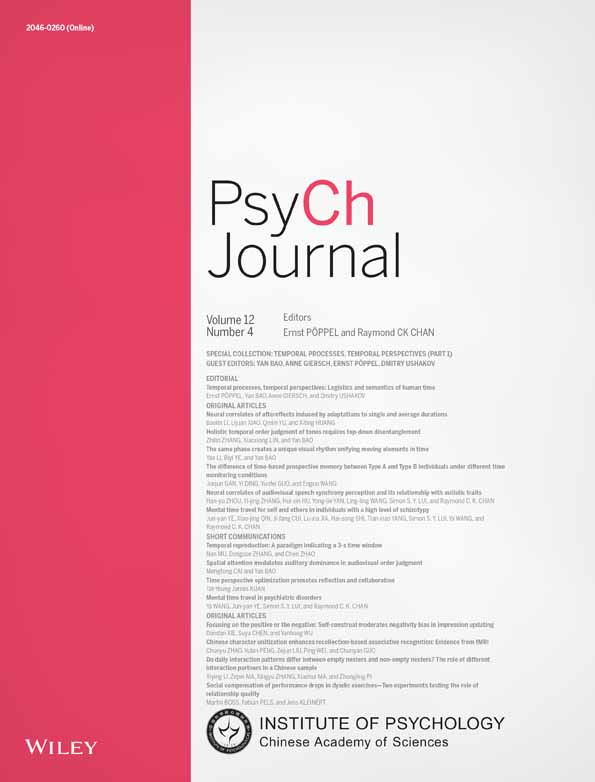The difference of time-based prospective memory between Type A and Type B individuals under different time monitoring conditions
Abstract
Time-based prospective memory (TBPM) is affected by many factors, which include Type A and Type B personality types. Type A individuals have a strong desire to complete tasks and a strong sense of time-urgency to complete established tasks before the deadline. Type B individuals have fewer time constraints and usually procrastinate until the deadline to complete the task. Compared with Type B individuals, Type A individuals may perform better in TBPM due to their advantages in time cognition and attitude. This study explores the differences in the TBPM ability between Type A individuals and Type B individuals under different time monitoring conditions. In Experiment 1, there was no limit to how many times participants could check the time. The results showed that the performance of TBPM between Type A individuals and Type B individuals was not different. In Experiment 2, participants could only check the time once during each TBPM task. The results showed that, compared to Type B individuals, Type A individuals performed better in TBPM, with higher time monitoring frequency and slower response speed to the ongoing tasks. These findings suggest that the performance of Type A individuals in TBPM has an advantage only under the restricted time monitoring condition. This advantage is then mainly due to the increase in the attention consumption of Type A individuals in both internal and external attention.
CONFLICT OF INTEREST STATEMENT
The authors declare there are no conflicts of interest.




